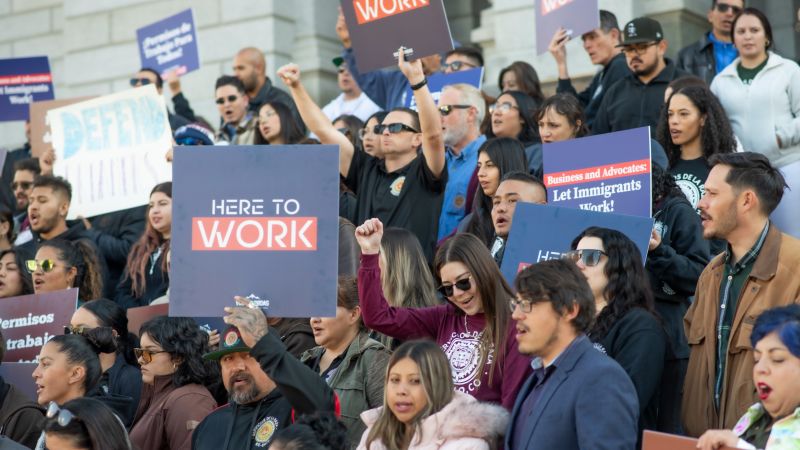Lisa Winton, the co-founder of Winton Machine Company in Suwanee, Georgia, faces challenges in finding skilled machinists to build the equipment that fabricates tubes and coax cables for her customers. A large portion of her workforce consists of immigrant workers, some of whom are undocumented and unable to obtain work authorization. This limits Winton’s ability to hire more experienced workers and puts her at a disadvantage compared to larger competitors who can assist candidates in applying for work authorization. As a result, Winton is among the business leaders advocating for the Biden administration to provide work permits to long-term undocumented residents to address the labor shortage issue.
The American Business Immigration Coalition, along with employers, federal lawmakers, local officials, and advocates, is urging President Biden to expand work permits to more long-term undocumented residents through executive action. With Congress gridlocked on immigration reform, the coalition believes Biden can make significant changes under current law, such as extending work permits to spouses of US citizens. However, presidential election campaigns, such as Trump’s promise to deport millions of undocumented immigrants, are adding urgency to the coalition’s plea for action to provide legal work opportunities for immigrant workers.
Reports indicate that about 7.8 million unauthorized immigrants were in the labor force in 2021, making up nearly 5% of the workforce. Many industries employ undocumented workers, with estimates suggesting that about 40% of hired farm crop workers and one in five workers in the construction-related sector lack legal authorization to work. Expanding work authorization to more long-term immigrants would not only help businesses fill job openings but also bring stability to employers who currently employ undocumented workers.
Some immigrants have obtained work permits through various USCIS programs, including Temporary Protected Status, DACA, and asylum-seekers after 180 days of filing for asylum. Mayors in northern US cities are pushing for expedited work authorization for new arrivals to help them secure jobs. Expanding work authorization for long-term immigrants would allow businesses to address labor shortages more effectively and bring revenue benefits through increased tax revenue. However, concerns have been raised that expanding work authorization could impact American workers negatively and create social problems.
The Trump administration’s immigration policies have led to increased arrests and deportations of immigrants living in the US, although levels remained below those seen under previous administrations. If reelected, Trump has promised to conduct the largest domestic deportation operation in American history, which could significantly impact businesses that rely on immigrant labor. Dairy farmers in Indiana have already experienced challenges in finding workers during Trump’s first term, and further deportations could harm industries reliant on immigrant workers. Advocates argue that allowing undocumented workers to work legally benefits both the individuals and the businesses that rely on their contributions.


